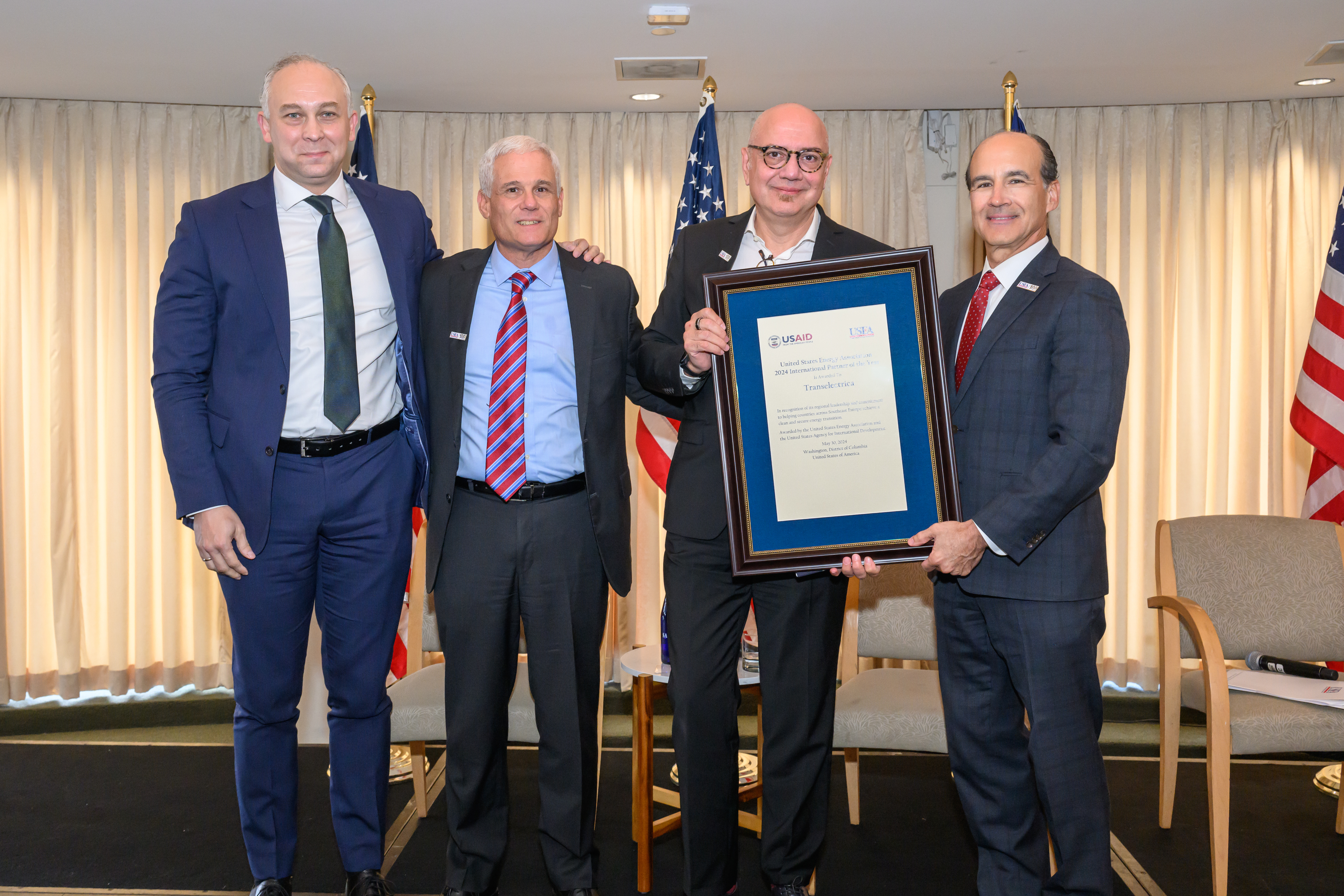USEA Recognizes Transelectrica as 2024 International Partner of the Year
Romanian transmission system operator is leading region to clean, secure energy transition
The United States Energy Association (USEA) is honored to recognize Transelectrica as International Partner of the Year for 2024, for its regional leadership and commitment to helping countries across Southeast Europe achieve a clean and secure energy transition.
Romania has grown from a development assistance recipient country—benefitting from support from the United States Agency for International Development (USAID)—to a European Union member nation. Now Romania’s energy leaders from Transelectrica, the country’s transmission system operator, are using their experience and expertise to help other countries in the region follow in Romania’s footsteps, ushering in a clean and secure energy transition across Europe and Eurasia that offers economic opportunity and decreases reliance on energy imports from malign nations.
“Romania has really stepped up its game and become a solid provider of energy solutions across the region,” said Cristian Gaginsky, Deputy Chief of Mission for the Romanian Embassy. “Energy is our main strategic tool in advancing U.S. and Romanian goals in Europe. This award is an incredible accomplishment for the Transelectrica team and for Romania.”
George Visan, Director of Energy Markets for Transelectrica, accepts the USEA 2024 International Partner of the Year Award on May 30, 2024, in Washington, D.C. Pictured here, from left: Cristian Gaginsky, Deputy Chief of Mission for the Romanian Embassy; William Polen, Senior Director of USEA; George Visan; Mark Menezes, President and CEO of USEA.
In 1992, following the end of the Cold War, Romania’s state-owned electricity utility began receiving development assistance from a USAID-funded USEA partnership to help Romania’s energy leaders and engineers incorporate best practices in utility management functions: metering, billing and collections, financial management, human resource management, power plant maintenance, safety, and more. USEA helped facilitate executive exchange visits, workshops, and internships that connected Romania’s new energy leaders with association members in the United States, including Boston Edison and Mississippi Power Company.
As the country’s energy sector matured, Romania’s electricity utility—which originally handled transmission, generation, and distribution—was restructured and corporatized. The transmission side was separated into a new business, Transelectrica, focused on transmission network operations and planning.
Transelectrica joined two, multi-year-long, USAID-funded USEA projects focused on regional network planning. In the first project, Transelectrica and other transmission system operators across the entire Southeast Europe region worked together to develop national and regional electricity network planning models that enabled utilities, policymakers, and regulatory authorities to plan for various power sector development scenarios. In the second project, Transelectrica joined with transmission system operators across the Black Sea region to develop and analyze the region’s first common transmission planning model.
As a former recipient of US development assistance, Transelectrica’s leaders felt a responsibility to “pay it forward” and support other maturing energy nations.
Beginning in 2020, Transelectrica and USEA partnered to support the feasibility study leading to the synchronous connection of the Ukrainian and Moldovan electricity networks with the electricity network operated by members of the European Union (ENTSO-E). Since 2022, Transelectrica has been an integral part of USAID/USEA efforts to improve Moldova’s energy security by lending its expertise and experience to Moldelectrica, Moldova’s transmission system operator, as it advances its integration with European electricity networks and markets. Specifically, Transelectrica is providing Moldelectrica with: executive exchange opportunities for its leaders; support in meeting the technical and business requirements for permanent ENTSO-E membership; and an agreement to construct an additional transmission interconnection between both countries that will reduce Moldova’s reliance on Russian energy supply.

